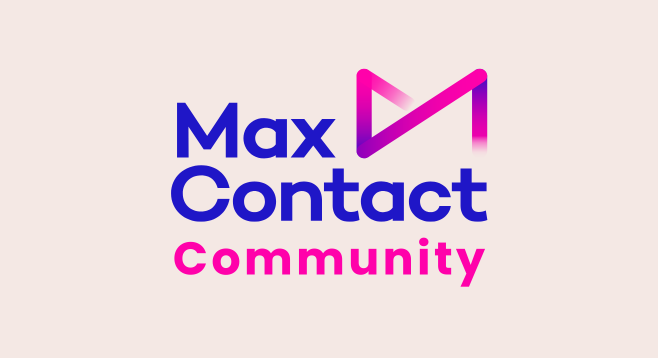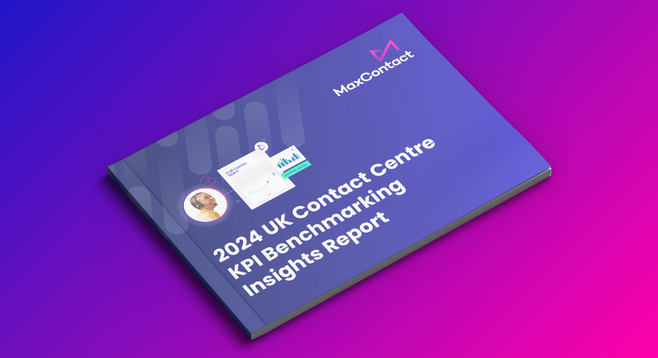We don’t mean to offend but you’re probably a bit of a liar. We’re not singling you out though: most of us tell a whopper or two every now and then.
But in this case, we’re not talking about covering up the fact that you ate the last biscuit (is that just us?) or forgot to put the recycling out. According to the latest study from MaxContact, many of us lie to the businesses and brands we purchase goods and services from, presumably so as not to cause offence. And that’s potentially a huge problem for every consumer-facing company in the UK.
Making excuses
Our survey of 1,000 UK consumers found that nearly a quarter have told a brand they were happy with the service they received when they weren’t. In addition, well over half (55%) of those polled make excuses to end conversations with company representatives. Some of them probably say they have to take the recycling out.
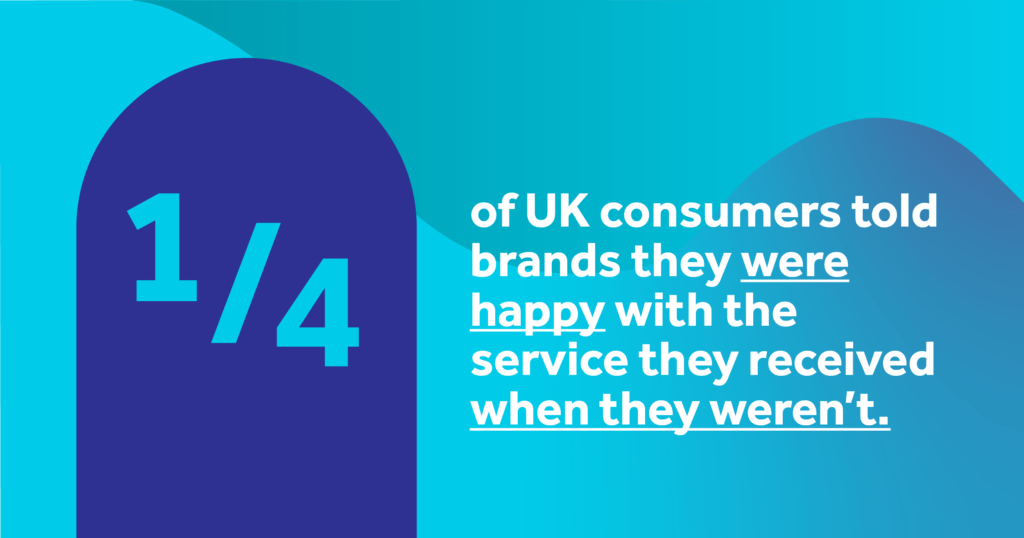
It’s easy to see how it happens. How many of us have told a waiter we were happy with an overcooked meal, or said our creaking broadband or banking services were fine just to get an agent off the phone? We lie when the truth might make the situation uncomfortable, meaning businesses walk away from the interaction thinking everything’s fine when it really isn’t.
So why don’t we just tell them the truth? Why don’t we say that the steak was great, but only if you like chewing the sole of an old boot?
Why don’t we tell customer service agents that our internet service is fine, apart from the frozen video calls and endlessly buffering on-demand TV, and NO, we wouldn’t recommend them to a friend!
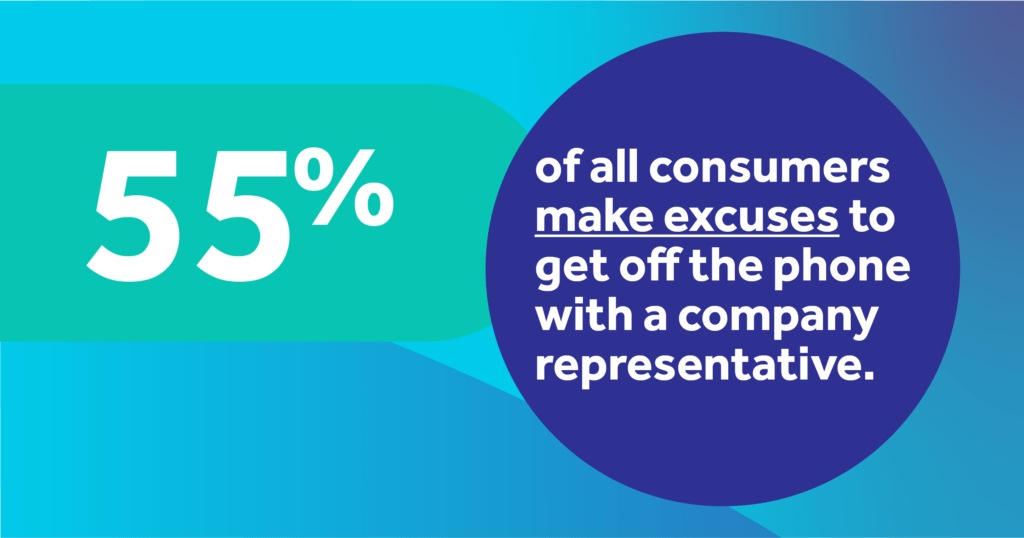
Complaining makes us uncomfortable
You might call it “traditional British reserve.” Many of us don’t want to complain because we don’t like confrontation, or we feel bad for the people on the other end of the phone, or because we don’t want to become embroiled in a long, drawn-out conversation when we have lots of other things to do. Sometimes complaining just feels too much like hard work.
So instead – and this is the problem for some businesses – we just leave. It’s easy to switch utility or broadband providers these days so many of us react to poor service by simply walking away. When a leisure or hospitality business disappoints us, we vow never to go back. Instead of giving these businesses and brands the chance to put things right, we silently swear that they’ll never see another of our hard-earned pounds.
Except, well, we’re not always that silent. We might not complain to the business itself, but we’ll certainly bad-mouth them on social media. The first a company might know of our dissatisfaction is a notification from Twitter.
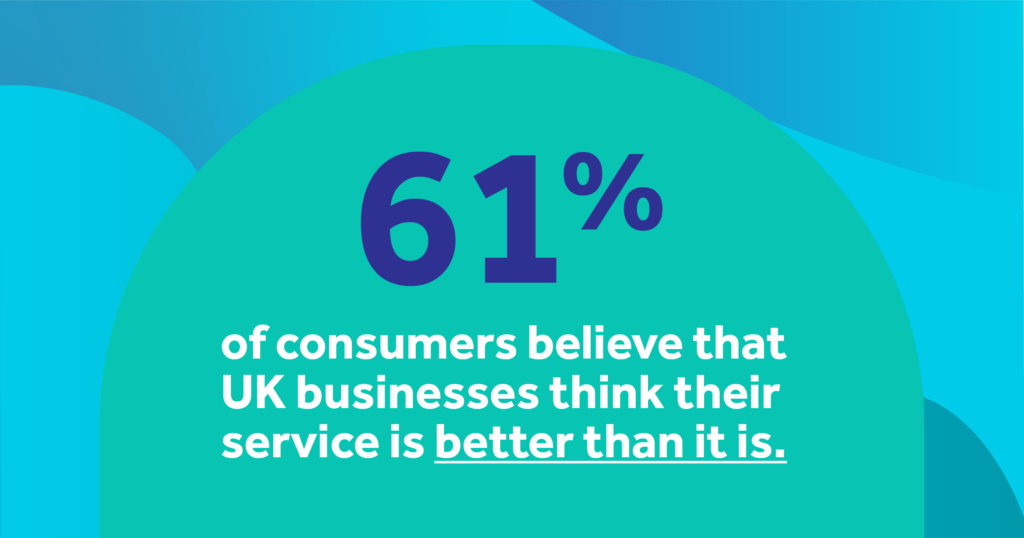
Brands need to up their game
This sounds a bit unfair on brands and businesses but they’re not blameless here – in fact, 61% of consumers believe that businesses think their service is better than it is. According to our survey, consumer dissatisfaction remains high across the board. For example, more than a quarter of UK adults feel unhappy with their broadband provider more than three times each year, while 17% are unhappy three or more times a year with their bank. A fifth (20%) are unhappy three or more times a year with their utility provider.
At the same time, many businesses want to get better and want to provide the kind of consistently good service that makes customers want to stay. But to improve, they need to know when something’s gone wrong. If many of us are staying silent instead of complaining, how do they know what they need to do differently?
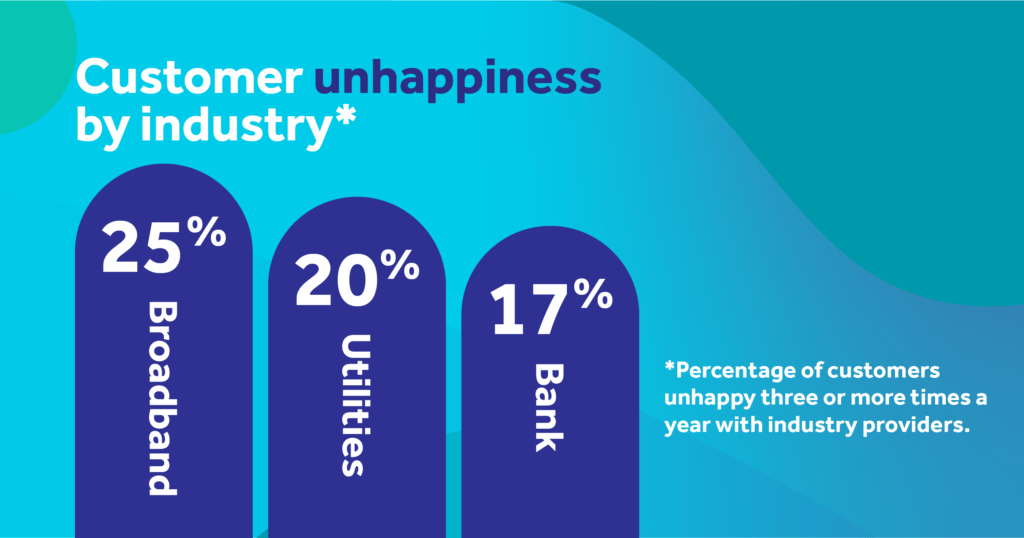
Creating rapport
The answer is to build a real rapport with customers, so they’re comfortable telling you when something isn’t up to the usual standard. If you get it right most of the time, but wrong once, most customers will give you the benefit of the doubt. After that, it’s about putting in place communication channels that offer opportunities for honest feedback that don’t involve uncomfortable conversations. Here are three ideas:
- Adopt an omnichannel approach. A customer might not feel comfortable complaining over the phone, but will happily text, WhatsApp or give honest feedback over a webchat.
- Create and advertise a complaints channel. Customers sometimes feel guilty venting to a customer service agent, especially when the agent is pulling out all the stops to retain their business. But they might be willing to use a specific complaints channel, especially if they know that the issue will quickly escalate to the right people.
- Invest in speech analytics. Adding speech analytics to your contact centre software is a cost-effective way of identifying customer sentiment through tone and speech patterns, regardless of what they actually say. Monitor customer contact behaviour, analyse your dialogue and start to build a ‘formula’ to help you proactively address potential customer churn.
These are all easy ways to find out what customers are thinking before you lose their business. As our survey suggests, doing so is becoming more important than ever. Many customers would rather fib than make a complaint, and that silence is costing businesses dearly.
Study of 1000 UK consumers conducted by Census Worldwide on behalf of MaxContact – May 2021.


